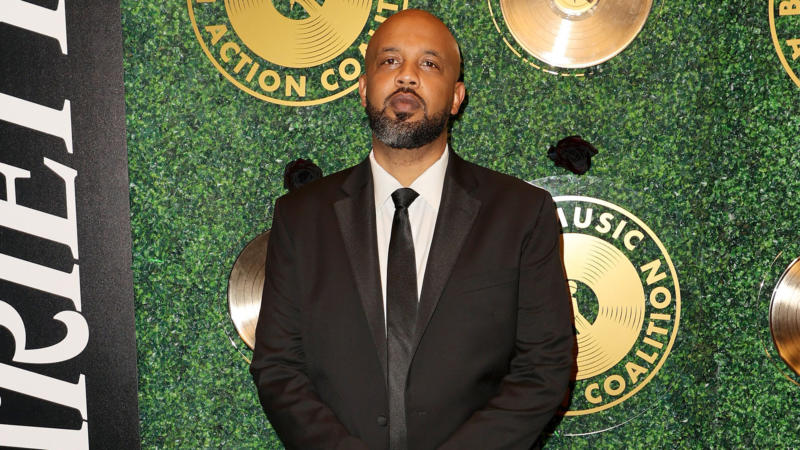From music pioneers that have led its evolution to how the genre connects diverse backgrounds through sonic sound, it’s evident that Hip-Hop is a staple in the culture. Its revolutionary impact is what pushed Congress to pass Resolution 331, a bill that declared November as National Hip-Hop History Month.
“This was the inaugural Hip-Hop History Month and we just wanted to make sure we were day one about it,” YouTube’s Director of Black Music & Culture Tuma Basa told AfroTech.
In case you missed it, the music streaming service honored the genre’s legendary artists with a musical tribute by curating playlists of the eras of Hip-Hop. To further put all eyes on the inaugural celebration, billboards of music icons such as Slick Rick, Snoop Dogg, and Missy Elliott were showcased in New York, Atlanta, and Los Angeles. Along with the culture being placed on full display, YouTube Music hosted a Town Hall gathering that featured Basa, DJ Premier, Kevin Liles, Brandon “Jersey Jinx” Jenkins, and DJ Nyla Simone.
Basa spoke with us about the honor of paying homage to Hip-Hop greats, bridging generations through music, and how Hip-Hop History Month will forever influence the culture.
AfroTech: From your perspective, what do you feel like the moment of YouTube Music’s Hip-Hop History Month celebration means to the culture?
AT: During the event, Kevin Liles mentioned that “You can’t call yourself Hip-Hop if you’re not giving back to Hip-Hop.” Along with this recent celebration, how does YouTube Music plan to keep championing Hip-Hop artists that contribute to what it is today?
AT: I love that the Town Hall gathering featured executives and creatives in music who scale across generations. How do you hope YouTube Music can keep playing a role in extinguishing the narrative of the “Old school vs. New School” debate within the Hip-Hop community?
Basa: I’d like to quote Ryan Thornton, our Head of Catalog at YouTube Music. He said, “What a 13-year-old is discovering may be considered ‘old school,’ but it’s new to them at that moment.” So that narrative is outdated. Kids are discovering records on social media and digging in the YouTube Crates…We’re in a unique position to bridge the generations. From Young Thug videos to Young Money lyrics to Young MC performances. It’s all just a quick search away on YouTube.
AT: Following last month’s celebration, how does the YouTube Music team aim to continue helping the stories of Hip-Hop originators not get lost in history as the genre continues to skyrocket?
Basa: This is our everyday work. Both internally and externally…on-platform and off-platform. Whether through playlists, events, or programs, it’s our mission to continue connecting the dots and being a sort of institutional memory for the culture. The one place where you can dig deep and come up better for it!


